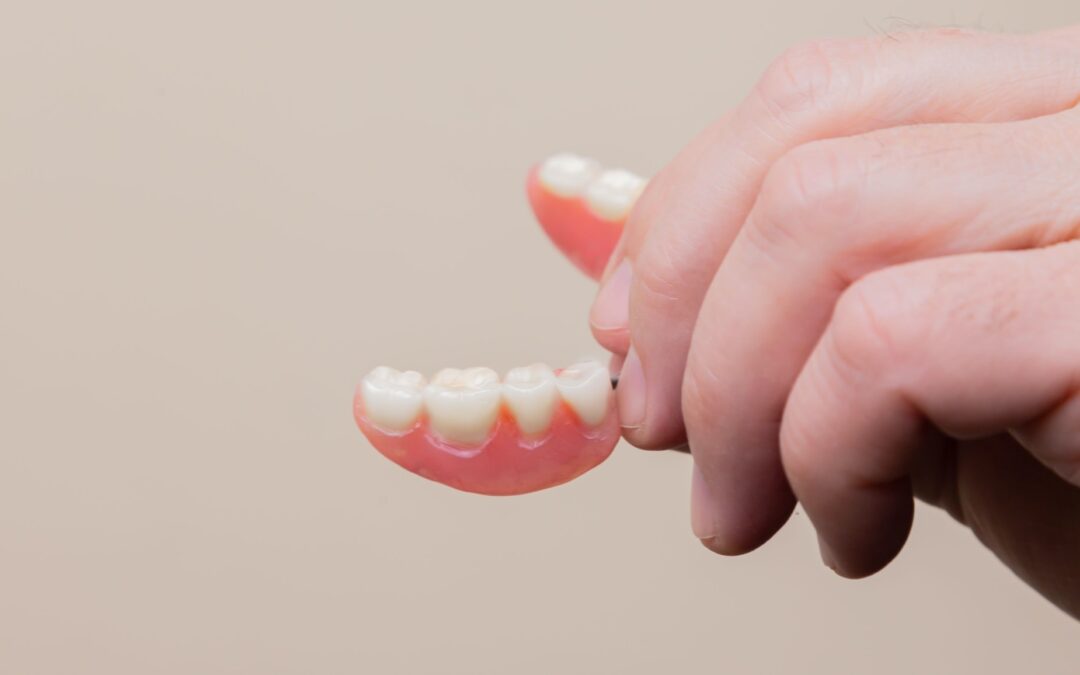Dental implants, dental bridges, and dentures are options for replacing missing teeth. However, they all do so in vastly diverse ways, and with varying benefits. If you’re missing teeth, and want to learn about the differences between these tooth replacement options, read to learn the answer to the question: “Are dental implants better than bridges or dentures?”
What is a Dental Implant?
Dental implants are widely regarded as the best option to replace missing teeth. This is because they are durable, promote better oral health, require no particular care, and mimic the appearance and function of natural teeth.
Benefits of Dental Implants
The single greatest benefit of dental implants is that they function like a natural tooth, and like a natural tooth root. The implant serves as an artificial tooth root, which means that your body treats the screw as it would treat a natural tooth root. This helps to preserve jawbone and prevent changes to your facial appearance.
The single greatest benefit of dental implants is that they function like a natural tooth, and like a natural tooth root. The implant serves as an artificial tooth root, which means that your body treats the screw as it would treat a natural tooth root. This helps to preserve jawbone and prevent changes to your facial appearance.
Dental implants are stain-resistant and do not develop cavities. They match your other teeth in shape, color, and size. You care for dental implants the same way you care for natural teeth. No special tools, adhesives, rinses, are required. Simply brush your implants twice a day and be sure to floss your teeth daily.
There are few drawbacks to dental implants. After all, they are considered the gold standard in tooth replacement options. Downsides include a longer treatment time, and cost. Dental implants can be expensive initially. But because they are so durable, they can actually be much more cost effective, over time.
What is a Bridge?
Bridges are also used to replace missing teeth. Dental bridges bridge gaps caused by missing teeth by anchoring to crowns on either side of the gap. An artificial tooth is then placed to fill the gap. Depending upon how many teeth you are missing in a row, your dentist may recommend one of several types of bridges, such as a Cantilever bridge, a Maryland Bridge, or an implant supported bridge.
Benefits of Dental Bridges
Dental bridges are typically more affordable than dental implants. However, implant-supported bridges will be more expensive than Cantilever bridges, or Maryland bridges. Many dental bridges do not require surgery, so you can replace missing teeth faster than with implants.
All the same, in most cases dental bridges are simply not as durable as dental implants. Bridges may need to be replaced every 7-10 years. Unless you choose to get an implant supported bridge, you will also continue to lose jawbone over time. Likewise, unless you have an implant supported bridge, you may continue to lose jawbone, because there is no root, or implant to prevent loss of bone.
What are Dentures?
Dentures are removable appliances that replace missing teeth, and gum tissue. Complete dentures for the upper or lower arch of teeth replace all the missing teeth. Partial dentures are used if one or more natural teeth exist in either the upper or lower arch. Dentures often require that you use an adhesive to ensure that they remain in place. Dentures are often made of an acrylic resin, while the artificial teeth are often made of acrylic or porcelain.
Pros and Cons of Dentures
The primary benefit of dentures is that they replace missing teeth. Dentures may also be more affordable than dental implants, or dental bridges.
Unfortunately, there are a lot of drawbacks to dentures. They do not provide any benefit to your jawbone, which will recede when you are missing teeth. So, when you’re not wearing your dentures, you mouth may look sunken. Other downsides of dentures are that they have been known to slip, causing embarrassment. Some individuals find dentures uncomfortable. They also require quite a bit of maintenance to keep them clean, and to ensure a snug fit in your mouth, which may require adhesive.
Unfortunately, there are a lot of drawbacks to dentures. They do not provide any benefit to your jawbone, which will recede when you are missing teeth. So, when you’re not wearing your dentures, you mouth may look sunken. Other downsides of dentures are that they have been known to slip, causing embarrassment. Some individuals find dentures uncomfortable. They also require quite a bit of maintenance to keep them clean, and to ensure a snug fit in your mouth, which may require adhesive.
Will Dental Insurance Cover Implants, Bridges, or Dentures?
Dental insurance may cover part of the cost of a dental implant or a dental bridge. Most dental insurance plans also cover a portion of dentures. You will need to check with your insurance company to determine how much coverage is offered for each option.
If you don’t have dental insurance, or your plan doesn’t offer much coverage, you can often get help with financing through companies such as CareCredit. CareCredit is a third-party financer of medical and dental treatments. You should also ask your dental office about any discounts, or specials they are running. Sometimes dentists offer uninsured patients discounts on restorative dental treatments.
Schedule a Free Tooth Replacement Consultation in Anaheim
The best way to determine whether dental implants, a dental bridge, or dentures are right for you, is to consult an experienced restorative dentist in Anaheim. Dr. Desai has provided Orange County residents with the best dental care available for 25 years. He provides dental implant surgery, dental bridges, and dentures to patients who need to complete their smiles and improve their oral health. At Smile Brite Dental in Anaheim, Dr. Desai will explain all your options for replacing missing teeth. He will be happy to help you choose the best option to help you achieve your smile goals. Call 714-776-3535 or contact us online to schedule an appointment.


Recent Comments